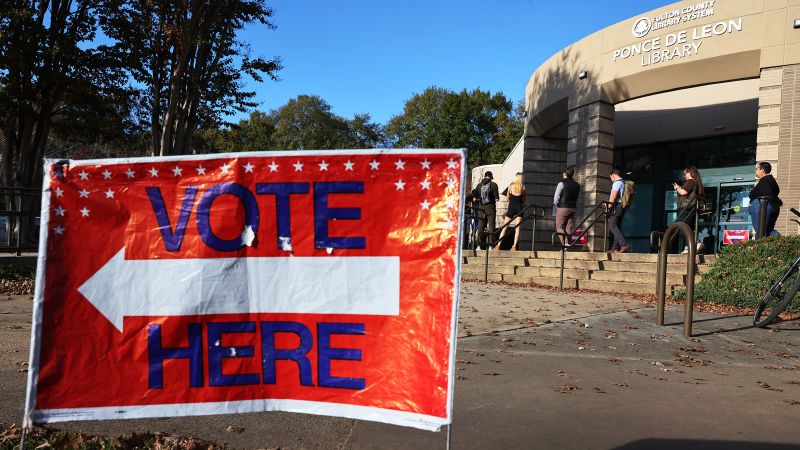County election officials in Georgia are required to certify election results, according to a ruling by Fulton County Superior Court Judge Robert McBurney. This decision was a setback for conservatives in the battleground state who were seeking to expand their powers. The judge emphasized that election superintendents must fulfill their obligation to certify results and cannot refuse or delay certification under any circumstances. This ruling is part of ongoing disputes over certification powers in Georgia, with another case pending that challenges new rules allowing local election officials to potentially delay or decline certification.
Judge McBurney clarified that while superintendents have a responsibility to investigate concerns of miscounts, this does not give them grounds to delay or decline certification. The case was brought by a Republican member of the Fulton County Board of Registration and Elections, who argued that her duties in certifying results were discretionary rather than mandatory. The judge rejected this argument, stating that allowing superintendents to unilaterally decide not to certify results based on perceived errors or fraud would undermine the voices of Georgia voters and go against the Constitution and Election Code.
Fulton County, in particular, has faced challenges in running elections, leading to the State Election Board reprimanding the county and appointing an independent election monitor. Issues arose during the 2020 presidential election, such as a batch of ballots being double-scanned during a recount. Despite these problems, extensive reviews of Georgia’s 2020 election did not uncover evidence of widespread fraud. Both machine vote counts and a hand count were conducted, with no evidence of tampering with tally sheets or mishandling of drop box ballots. This lack of evidence undermines claims of election fraud in Georgia.
The ruling by Judge McBurney reaffirms the importance of election certification as a fixed obligation for county officials in Georgia. By emphasizing that officials must fulfill their duty to certify results, the judge is upholding the integrity of the election process and ensuring that the voices of voters are respected. The decision also sets a precedent for future disputes over certification powers, clarifying that officials cannot unilaterally refuse or delay certification based on their own interpretations of errors or fraud. This ruling is significant in the ongoing debate over election integrity and the role of local officials in the certification process.
As Georgia remains a critical battleground state in national elections, the outcome of these disputes over certification powers is closely watched. With ongoing challenges to election results and claims of fraud, the ruling by Judge McBurney provides clarity on the responsibilities of election officials and the limitations of their authority. By upholding the mandatory nature of certification, the judge is promoting transparency and accountability in the election process, ensuring that results are certified in a timely and impartial manner. This decision reinforces the integrity of the election system in Georgia and provides guidance for future electoral disputes.













